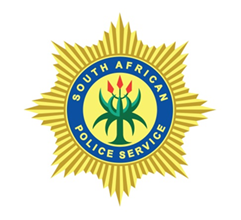In the run up to the Municipal elections taking place on 3 August 2016, The Cape Party, in existence since 2007, is calling for voters to support its call to exit from the Republic of South Africa (RSA), and what it terms a ‘colonial construct’ – an Act of the British Parliament in 1909 that was never ratified by the people of the then country, in any referendum.
Recent events in the world have highlighted the question of protecting identity, sovereignty and a country’s own business interests, over international doctrines, which has since sparked a number of other spinoffs in similar vein. The Cape Party feel their timing for this local election is therefore pertinent, and speaks to a growing dissatisfaction with national government’s policies among a broad section of the Cape’s residents.
“While the jury might still be out on the long-term effects of BREXIT (Britain’s exit form the European Union), the positive implications and effects of the Western Cape seceding from the greater South Africa are indisputable, hence our CAPEXIT strategy for this coming local election.
“While we do not expect to win, we are looking to raise a minimum of 5 000 votes to be able to have a voice in the running of the Cape, and add a new dimension to the discussions affecting those of us living here in the Cape Nation,” stated Jack Miller, founder and Lead Representative of the Cape Party.
Miller and his associates make some extremely strong points in support of their call. On the economic front, currently, only the Western Cape and Gauteng are net revenue producers and are consequently supporting the rest of the country. The Western Cape contributes in the region of R185 billion to the national treasury, yet it is allocated the paltry amount of R45 billion with which to run South Africa’s most efficient province. With a fully independent ‘Cape Nation’, The Cape Party has mooted that it would be possible to cut taxes (even by 50%) and still double the services, by using all of the retained revenue. (Interestingly, if the Western Cape’s GDP was compared to other countries; it would rank alongside Denmark, yet another reason why it makes financial sense to stand alone).
Exiting, would also allow the Cape Nation to negotiate its own international trading agreements. This would mean it would not be susceptible to the blanket tarring of the brush from national Government’s ’emotionally driven economic policy’, which runs the risk of the country being downgraded to junk status – something which would be avoided by the Cape being on its own.
Legally, there is nothing stopping the Western Cape from removing itself. Self-determination of the Cape is protected and guaranteed by the South African Constitution, the African Union, the United Nations, and, International Law. In fact, the Cape was independent far longer than it has been part of the greater ‘South Africa’ and has a rich history and culture that is being systematically eradicated the longer it remains as part of the RSA.
Further underlining his point, Miller reminds voters that Lesotho and Swaziland are independent countries within the artificial borders of South Africa. They returned to independence in 1966 and 1968 respectively.
“It is our contention that the ruling party politically and economically discriminate against the majority of the Cape people. The Proportional Representation system means that no vote is wasted. Every vote for The Cape Party is a vote for a stronger voice and opposition. Help us get our 5 000 votes to free our province,” concluded Miller.
@CapeParty #5000Votes #CapeExit








